Text
Listen, I'm having fun playing with the ultra patriotic voice, but after a couple years in blue-collar landscaping jobs, you really do need to phrase things like that.
"I'm pretty sure that fella ain't here legally."
"Well, that ain't your business Chip, it's his."
They hate being preached to. If you pull out words like 'gender wage gap' they'll tell you you're brainwashed by the far left media.
"He's one of them transgenders."
"He got freedoms too, Jimmy."
76K notes
·
View notes
Text
Want to learn something new in 2022??
Absolute beginner adult ballet series (fabulous beginning teacher)
40 piano lessons for beginners (some of the best explanations for piano I’ve ever seen)
Excellent basic crochet video series
Basic knitting (probably the best how to knit video out there)
Pre-Free Figure Skate Levels A-D guides and practice activities (each video builds up with exercises to the actual moves!)
How to draw character faces video (very funny, surprisingly instructive?)
Another drawing character faces video
Literally my favorite art pose hack
Tutorial of how to make a whole ass Stardew Valley esque farming game in Gamemaker Studios 2??
Introduction to flying small aircrafts
French/Dutch/Fishtail braiding
Playing the guitar for beginners (well paced and excellent instructor)
Playing the violin for beginners (really good practical tips mixed in)
Color theory in digital art (not of the children’s hospital variety)
Retake classes you hated but now there’s zero stakes:
Calculus 1 (full semester class)
Learn basic statistics (free textbook)
Introduction to college physics (free textbook)
Introduction to accounting (free textbook)
Learn a language:
Ancient Greek
Latin
Spanish
German
Japanese (grammar guide) (for dummies)
French
Russian (pretty good cyrillic guide!)
331K notes
·
View notes
Text
Doctor Who season 4 is so delightful because you can tell that The Doctor, on occasion, straight up forgets that he's sad and burned because he's busy being in a sci-fi buddy comedy. And then something will remind him and he'll be like oh! I'm sad and burdened! And Donnas almost always there to be like 'hi sad and burdened. I'm Donna' and he has a completely proportional reaction like 'i would die a thousand deaths for you'.
7K notes
·
View notes
Text
"the world isn't kind" ok??? Much more importantly are you?????
187K notes
·
View notes
Text
“your rent should be a third of your income” well wouldn’t that be nice. wouldn’t it. lower the rent pussy
210K notes
·
View notes
Text
[“Coming out was very lonely. I had very few friends. Most of the adult lesbians I knew were alcoholics, chronically unemployed, prone to violence, self-hating, apolitical, closeted, cliquish. Lesbians hated each other. If you found a lover you stopped going to the bar because you could not trust other lesbians; they would try to break up your relationship. My first woman lover went into the military, where she turned in other lesbians so she would not be exposed. One of my dyke friends got a job as a supervisor in a cabinet-making company and refused to hire lesbians because, she said, they were unreliable employees who were disliked by the other workers. The only thing that seemed worse to me than the apolitical lesbian community I came out in was the strangulation of pretending to be straight. I came out only because I could not go back; there was no place for me to stand in the het world. I was driven out.
Moving to San Francisco improved things somewhat. There was more public lesbian space there—six bars instead of one. But it did not alleviate the loathing with which my family viewed me. Nor was San Francisco in the early seventies any sort of gay utopia. We had no gay-rights law, queer bashing was a frequent event, and everyone had lost at least one job or been denied a place to live. It was a relief to be surrounded by other lesbian feminists, but only to a point. Bar dykes and feminists still had contempt for one another. Feminism rapidly became a way to reconstitute sexual prudery, to the point that it seemed to me that bar dykes were actually more accepting of and knowledgeable about the range of behavior that constituted lesbianism. In the bars or in the women’s movement, separatism was pretty much mandatory, if you didn’t want to get your ass kicked or be shunned. Separatism deteriorated into a rationalization for witch hunts in the lesbian community rather than a way for women to bond with one another and become more powerful activists. The lesbian community of that decade did terrible things to bi women, transgender people, butch/femme lesbians, bar dykes, dykes who were not antiporn, bisexual and lesbian sex workers, fag hags, and dykes who were perceived as being perverts rather than über-feminists. We were so guilty about being queer that only a rigid adherence to a puritanical party line could redeem us from the hateful stereotypes of mental illness and sexual debauchery.
What did I gain? I came a little closer to making my insides match my outsides, and that was no small blessing. The first time I met other dykes I recognized a part of myself in them, and knew I would have to let it out so I could see who I was. For a time, being a lesbian quieted my gender dysphoria because it made it possible for me to be a different kind of woman. That was an enormous relief.
For a long time, I hoped that by being strong, sexually adventurous, and sharpening my feminist consciousness, I could achieve a better fit between my body and the rest of me. Lesbianism was a platform from which I could develop a different sort of feminism, one that included a demand for sexual freedom and had room for women of all different erotic proclivities. I had a little good sex and discovered that I was not a cold person, I could love other people. It was as a lesbian that I began to find my voice as a writer, because in the early days of the women’s movement, we valued every woman’s experience. There was a powerful ethic around making it possible for every woman to speak out, to testify, to have her say. But there were always these other big pieces of my internal reality that lesbianism left no room for.
The first big piece of cognitive dissonance I had to deal with, in my second coming out, was S/M. I date my coming out as a leather dyke from two different decisions. One was a decision to write down one of my sexual fantasies, the short story that eventually became “Jessie.” At the time I wrote the rough draft of that story, I had never tied anybody up or done anything else kinky. I was terribly blocked as a writer. I kept beginning stories and poems that I would destroy. I have no idea if they were any good or not. My self-loathing was so intense, my inner critic so strong, that I could not evaluate my own work.
So I decided to write this one piece, under the condition that I never had to publish it or show it to another person. I just wanted to tell the truth about one thing. And I was badly in need of connecting with my own sexuality since I was in the middle of what would be a five-year relationship with a woman who insisted we be monogamous, but refused to have sex with me. So I wrote about dominance and submission, the things I fantasized about when I masturbated that upset me so much I became nauseated. Lightning did not strike. As I read and reread my own words, I thought some of them were beautiful. I dared show this story to a few other people. Some of them hated it. Some of them were titillated. Nobody had ever seen anything like it before. The story began to circulate in Xerox form, lesbian samizdat. I found the strength to defend my story when I was told it was unspeakable or wildly improbable.
In October of 1976, I attended a lesbian health conference in Los Angeles and went to a workshop there about S/M. In order to go to a workshop, you had to sign a registration sheet. I was harassed by dykes who were monitoring this space to see who dared sign up for that filthy workshop. On my way, I had to walk through a gauntlet of women who were booing and hissing, calling names, demanding that the workshop be canceled, threatening to storm the room and kick us all out of the conference. The body language and self-calming techniques I had learned when I had to deal with antigay harassment on the street came in very handy, but how odd it was to be using those defenses against the antagonism of other dykes. Their hatred felt like my mother’s hatred. I am so glad I did not let it stop me.
When I got home from that workshop, I knew that I was not the only one. Not only were there other lesbians who fantasized about sadomasochism, there were women who had done these things with each other. I decided to come out again. If there were other leather dykes in San Francisco, they had to be able to find me, so I had to make myself visible. This meant that I often did not get service at lesbian bars, or I was asked to leave women-only clubs and restaurants. I was called names, threatened, spit at. I got hate mail and crank calls. But I also found my tribe. And because I had already experienced my first coming out, I knew we were not going to be an ideal, happy family. I could be more patient with our dysfunctions, and see them as the result of being scared, marginalized, kicked around. Being a leather dyke took me another step closer to dealing with my gender issues. I could experiment with extreme femme and extreme butch drag; take on a male persona during sex play. I gave up separatism because I needed to take support from any place where it was available. Gay men already had a thriving leather culture, and I wanted to learn from them. I also wanted to have sex with them. It still wasn’t okay as far as lesbian feminism was concerned to be bisexual, to be transgendered, but I could bring those folks into my life and make alliances with them. I could defend them in print. There was even more good sex, and people who loved me and received my love despite the fact that it was dangerous for us to show ourselves to one another. I faced my sexual shadow, and she bowed to me and then danced beautifully in profile against the white walls of my consciousness. My writer’s voice was unlocked.”]
pat califa, from layers of the onion, spokes of the wheel, from a woman like that: lesbian and bisexual writers tell their coming out stories, 2000
1K notes
·
View notes
Text


















“Doctor Who” 60th Anniversary specials came to say that platonic love IS true love, platonic love can save you, it can be your happy ending. Your soulmate and the love of your life can be platonic. And it is as powerful, deep and fulfilling as romantic love. Platonic love can move mountains and break the rules of the universe. Donna Noble spent 15 years of her life feeling a hole in her heart because her best friend was not there by her side. She had everything, and yet she was grieving every day for something she couldn’t even remember. The Doctor spent thousands of years missing her and after all this time still remembers every second he had spent with his best friend and every detail about her. And when they are reunited, all is right in the world again. Donna gets the Doctor who tells her he loves her, kisses her hands, who hugs her like she is the most precious thing in the world and kisses her hair, who wears his hearts on his rolled up sleeves and confesses how much losing her broke him and how much he has missed her. Donna gets the Doctor who in the face of the world ending thinks about her first, the Doctor who broke through the normal regeneration cycle, so he can see her again and COME HOME.
2K notes
·
View notes
Text
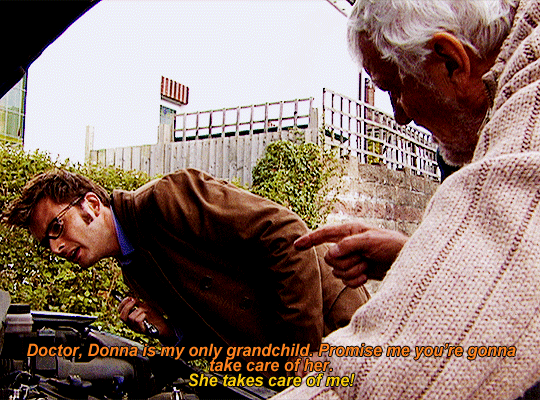
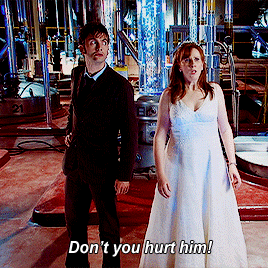
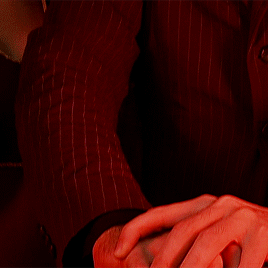
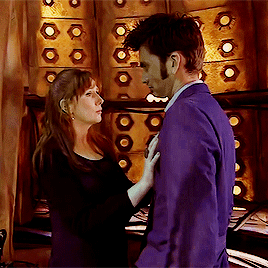
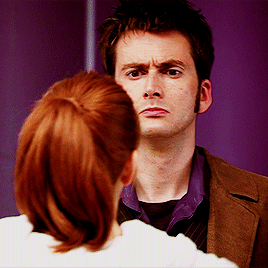
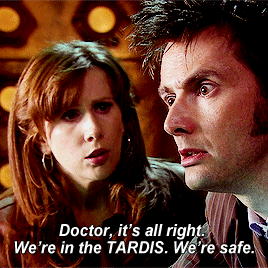
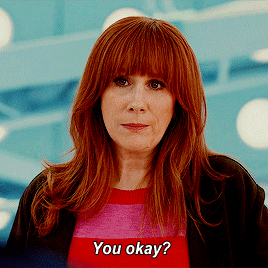

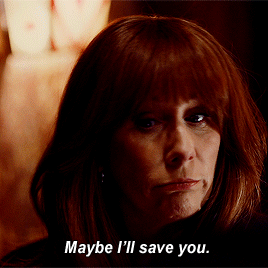

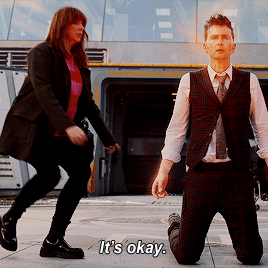
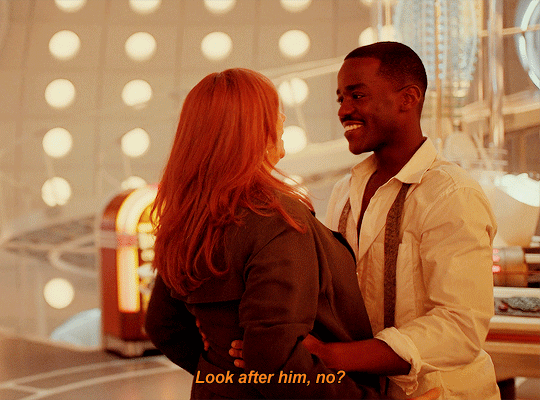
Donna Noble showed up in the TARDIS unannounced and ended up giving the Doctor the biggest gifts - compassion, friendship, love, a spot in her huge heart and a home.
12K notes
·
View notes
Text
i keep meeting transfems whose personalities are like, gaping wounds. girls who've been stomped on over and over until they start thinking they're uniquely evil and they deserve it. people shouldn't be allowed to treat us like this.
30K notes
·
View notes
Text
“I’m tired of voting every 4 years”
You’re 26 and there’s 80 year old black women who remember a time when they couldn’t vote but STILL aren’t tired of it. Maybe it’s a skill issue on your part.
20K notes
·
View notes
Text
hey my besties who live in red states: id like you to go out and vote anyway.
yeah, the electoral college means your vote doesn't count unless you win your state. it's a terrible undemocratic bullshit system. it's not going to change before this election,* so there isn't much point in complaining about it right now.
if you hold the belief that there's no point in voting because your voice will just be downed out by a chorus of bigotry- chances are other people in your state feel the same way. and because those people are not voting, it's impossible to know how many of you there are. the reason it's important to vote EVEN WHEN YOU KNOW YOU ARE GOING TO LOSE is to make this number public.
when the minority in a state still goes out to vote:
- other members of the minority party know they aren't alone in their state. this encourages MORE people to vote in the next election
- the majority candidates are forced to divert some of their campaign resources away from swing states to secure a state they were already going to win
- the minority candidates are encouraged to spend some time campaigning in your state instead of abandoning it as a lost cause
- assuming you also vote in local elections, the minority is more likely to win representatives in the house
- who knows there might be so many of you that you fucking flip it by mistake
there has been a 700% increase in new daily voter registrations in the few days since Biden dropped out of the race.
thousands of people are deciding, right now, that voting is worth it. some of them live in your state. there is going to be a spike in blue votes across the country. this election is going to have the youngest voter turnout in history. this is the best possible time to join them. join us.
what have you got to lose? one afternoon?
26K notes
·
View notes
Text
I've seen a lot of posts criticizing terminally-online leftists for thinking that not voting will somehow send the Deomcratic party to the left instead of to the center, and while that is true
I haven't seen many pointing out that voting actually works for progressive causes.
Joe Biden moved to the left significantly on climate because the left wing of the party wanted to work with him. The centrists in the party, like Joe Manchin, frustratingly dragged their heels on everything because they weren't that interested in getting things done. But the leftists in the party, like Bernie and AOC, actually engaged in talks and compromises and pulled Biden much, much farther left on climate than where he started. A lot of great green policy came out of the last four years!
There was even a Pod Save America interview a few months ago where one of Biden's cabinet members (very diplomatically) confirmed that the leftwing of the party was so much better to work with than centrists like Joe Manchin. (Probably because leftists actually care about the things they talk about and want to do things besides go to fancy Washington parties and stay in congress for a million years.)
So, I really cannot stress enough that actually showing up and working with people actually does pay off for your cause. You can do more for the things you care about when you are at the table. Your vote actually does create the change you are seeking, even when you are voting for someone who is not 100% aligned with you.
13K notes
·
View notes
Text
Saw this clip of an ‘incel documentary’ where this guy was chatting about how he’s never had a girlfriend and doesn’t speak to women.
And for me, the biggest failing of that is it’s clear he’s never been taught that it’s alright to be rejected, and not in a sleazy pick-up-artist ‘ask everyone for a date’ way.
Learning how to accept rejection is something I think is missing from a lot of people’s, but particularly young men’s, lives.
The guy in the documentary was expressing that he hadn’t ‘won the genetic lottery’ and that women only wanted men over 6ft. It was just so clear that his fear of rejection had pushed him into total isolation where he’d found solace in a bunch of other men all doom-mongering over their own perceived ugliness.
It’s normal to over-analyse how you look. I’ve had body issues since early high school, but most people don’t know about it unless I tell them.
That, and I largely defeated it by accepting that I’m god’s gift to this earth, but that silly sort of confidence doesn’t come from ‘winning the genetic lottery’ - it comes from not being scared of rejection.
2K notes
·
View notes
Text
i know we're all sick of self-care being a marketing tactic now, but i don't think a lot of us have any other concept of self-care beyond what companies have tried to sell us, so i thought i'd share my favorite self-care hand out


brought to you by how mad i just got at a Target ad
172K notes
·
View notes
Text
the thing is like. i get that it's scary and makes people who do desire to get pregnant uncomfortable when we talk about the brutality and violence of pregnancy and the damage that pregnancy can do to your body
but you deserve to give informed consent to that process.
the lies around pregnancy - that it's inherently safe, that it doesn't do you permanent damage, that it's only extremely rare for people to die of pregnancy complications, etc like
all of these are lies constructed so that more people will get pregnant w/o knowing all that
there needs to be more talk about the impact of miscarriages and how common they are, how different abortion processes are and how accessible they are
but also like. talking about how pregnancy fucks your body up should not be taboo
this is a process that permanently changes most people's bodies, and that's even if the pregnancy doesn't do them like. severe illness or injury
and i just think everybody should have a right to KNOW that
bc to live in a society that intentionally obscures and hides facts about a completely optional and dangerous process does so for a reason, and that reason is based in a very sinister ideology that does not value bodily autonomy or informed consent
75K notes
·
View notes
Text
loudly going "YOU'RE GOOD YOU'RE GOOD" to myself to ward off the memory of every embarrassing thing i've ever done
297K notes
·
View notes

